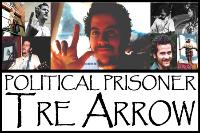Wednesday, January 10
As the World Churns: Invasive Cyber, Coin and Cash Surveillance, oh my...
A couple of links provided yesterday (Wednesday) by Michael Rivero at WhatReallyHappened.com on personal surveillance caught my attention, which in turn led me to a third reported in a British publication.
 The first introduced me to Tor, downloadable freeware for online anonymity. In a few minutes and keystrokes, I had downloaded the software, configured it and tested my connection; my ISP address indeed is masked different, according to two diagnostic tests.
The first introduced me to Tor, downloadable freeware for online anonymity. In a few minutes and keystrokes, I had downloaded the software, configured it and tested my connection; my ISP address indeed is masked different, according to two diagnostic tests.The website's "Overview" offers the following description of its services:
Tor is a network of virtual tunnels that allows people and groups to improve their privacy and security on the Internet. It also enables software developers to create new communication tools with built-in privacy features. Tor provides the foundation for a range of applications that allow organizations and individuals to share information over public networks without compromising their privacy.
Individuals use Tor to keep websites from tracking them and their family members, or to connect to news sites, instant messaging services, or the like when these are blocked by their local Internet providers. Tor's hidden services let users publish web sites and other services without needing to reveal the location of the site. Individuals also use Tor for socially sensitive communication: chat rooms and web forums for rape and abuse survivors, or people with illnesses.
Journalists use Tor to communicate more safely with whistleblowers and dissidents. Non-governmental organizations (NGOs) use Tor to allow their workers to connect to their home website while they're in a foreign country, without notifying everybody nearby that they're working with that organization.
Groups such as Indymedia recommend Tor for safeguarding their members' online privacy and security. Activist groups like the Electronic Frontier Foundation (EFF) are supporting Tor's development as a mechanism for maintaining civil liberties online. Corporations use Tor as a safe way to conduct competitive analysis, and to protect sensitive procurement patterns from eavesdroppers. They also use it to replace traditional VPNs, which reveal the exact amount and timing of communication. Which locations have employees working late? Which locations have employees consulting job-hunting websites? Which research divisions are communicating with the company's patent lawyers?
A branch of the U.S. Navy uses Tor for open source intelligence gathering, and one of its teams used Tor while deployed in the Middle East recently. Law enforcement uses Tor for visiting or surveilling web sites without leaving government IP addresses in their web logs, and for security during sting operations.
The variety of people who use Tor is actually part of what makes it so secure. Tor hides you among the other users on the network, so the more populous and diverse the user base for Tor is, the more your anonymity will be protected....
Kudos and a hearty thanks to Tor.Predictably, my internet cruising speed slowed some (although I will apply suggested tweaks to my Foxfire to speed it up). Moreover, the group suggests users seeking industrial-strength online stealth should augment Tor.
Rivero's second news item ("Transmitting Canadian coins found in U.S.") courtesy of the London Free Press raises more questions than it answers about RFIDs (radio frequency ID chips) in our currency. But I know now coins bearing uncanny likenesses to US presidents can be equipped with tracking chips to disclose your whereabouts--until you drop the coin into a vending machine.
Just something else to think about. Since the piece is so brief, I am posting it in its entirety. Any ideas as to what's going on here are welcomed.
OTTAWA -- Canadian coins containing tiny transmitters have mysteriously turned up in the pockets of at least three American contractors who visited Canada, says the counterintelligence office of the U.S. Defense Security Service.
Security experts believe the miniature devices could be used to track the movements of defence industry personnel dealing in sensitive military technology. "You might want to know where the individual is going, what meetings the individual might be having and, above all, with whom," said David Harris, a security consultant. But another consultant, Chris Mathers, pointed out an obvious problem: what if the coin-holder plunks the device into a pop machine? "I mean, he might have it for an hour," Mathers said.
Then in a story the paper linked beneath that quixotic piece, the London Free Press also provided security-minded readers another reason to lie awake a nights over their thoroughly compromised privacy: an electronic scam to clean out checking accounts.
An alert Londoner spotted three curious-acting men at an East London ATM machine yesterday and called police. When a cruiser arrived on the scence, two acting as lookouts ran but the third was arrested inside the kiosh.
In his possession, police found "a card-skimming device and pinhole camera used to record and transfer banking information to fraudulent debit cards" for emptying checking accounts of unsuspecting customers.
"We are seeing an increase in this type of fraud. The equipment the suspects are using is becoming more sophisticated and is continually adapting as financial institutions are making changes to try and prevent this crime," Constable Amanda Pfeffer told the LFP Tuesday.
Pfeffer also stated the alert citizen had "prevented thousands of dollars of fraud from being committed" yesterday had the plan not been detected when it was.











